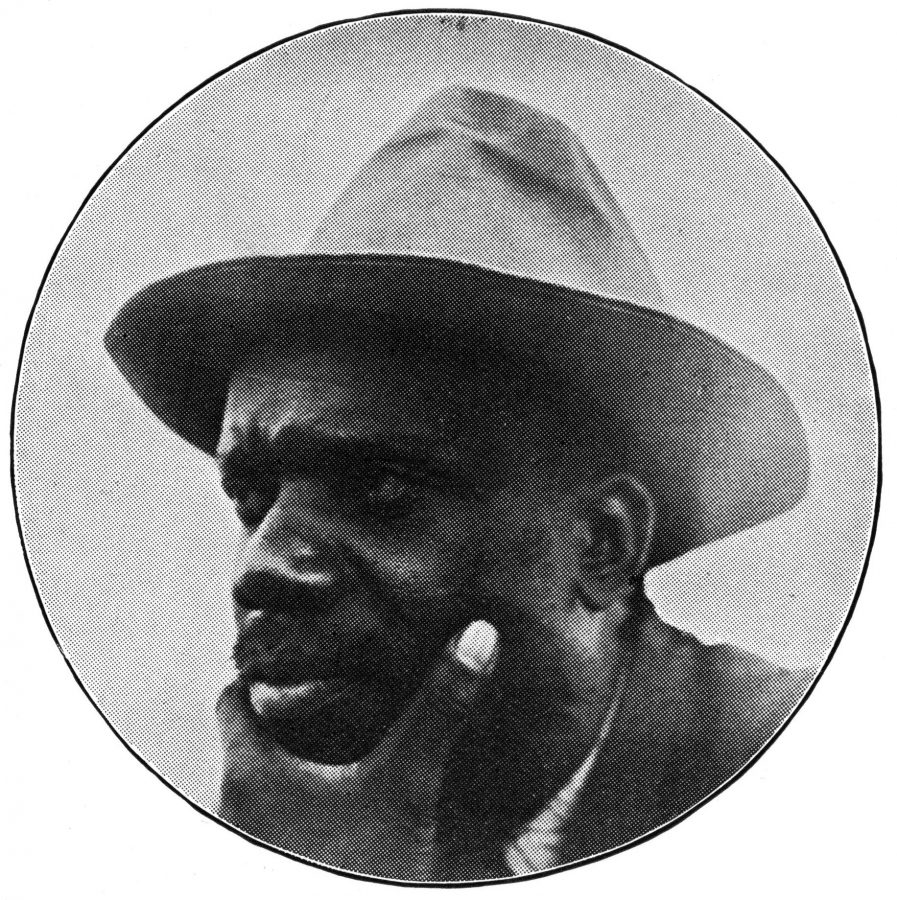In the history of the University of Texas, few persons have become so appreciated and integral to the 40 Acres that they’re considered campus traditions. Henry Reeves
was one.
Henry Reeves was born April 12, 1871 in West Harper, Tennessee. The middle of five children, his parents, Benjamin and Sarah Reeves, were former slaves.
According to old city directories found in the Austin History Center, in 1983, the family moved to Austin, where Benjamin found work as an expressman, a potentially hazardous position, where he was responsible for the delivery of a train’s cash, gold and other valuables. Benjamin rode the express car and guarded the safe from would-be thieves. He was the only person who had memorized the combination, a talent he would pass on to
his son.
Henry worked odd jobs for several local families before the University hired him in 1897 as a janitor for the new, student-created gymnasium in the basement of the old Main Building.
Affable and eager to do a good job, Henry impressed everyone with his ability to memorize the combinations of hundreds of gym lockers. He was soon drafted to be the water carrier and equipment manager of the football team, but when his basic knowledge of first aid and medicine came to be known, his duties expanded to include athletic trainer for all UT athletes. Students began to call him “Doc” Henry.
For almost 20 years, Henry was a fixture on the 40 Acres, on the sidelines for every football game in his striped, three-piece suit and a hat that varied in style from fedora to Stetson.
Equipped with tape, bandages and pain relief ointments of arnica and witch-hazel, he treated muscle cramps, twisted ankles and bruised noses. While University Physician Joe Gilbert handled the serious cases, “Doc” Henry was more popular.
Henry traveled with the team, as far away as Atlanta and Chicago, but because he was African-American, he also endured the humiliation of Jim Crow segregation. Henry wasn’t permitted to stay in the team’s hotel and instead had to find his own lodgings and meals. No one knew quite how he did it, but he was always ready at the football field the following day.
On campus, despite the prevailing social mores toward race at the time, Henry was highly respected. Through his genial character and abilities, he showed members of the University community — even if dimly — that race was only skin deep. In 1909, when a new gym director tried to replace Henry with a personal friend, students protested and petitioned the Athletic Council. Henry was retained, and the new director departed. When the Delta Delta Delta sorority hosted a 1913 dinner and dance for the football squad, Henry was invited. Soon after, The Daily Texan lauded Henry’s uncanny ability to predict football scores.
At the 1914 Texas versus Southwestern football game, Henry was asked to lead the crowd in a “Fifteen Rahs” yell, which meant shouting “Rah! Rah! Rah!” five times, followed by “Texas!” He obliged, but at the end, the crowd yelled “Henry!” The same year, the Alcalde alumni magazine published his choices for an all-time UT football team, which was also included in the Cactus yearbook. In all of these cases, Henry broke through longstanding racial barriers.
In November, 1915, on the train ride to the first Texas versus Texas A&M game to be played in College Station, Henry suffered a stroke and watched the game from a jitney. As concerns were raised about his long-term health, the Athletic Council voted to award Henry a University pension, the first to an African-American. The following week, when Notre Dame visited for the final football bout of the season, fans collected over $250 for Henry, which more than covered the medical bills. After a second stroke a few months later, Henry passed on February 19, 1916.
“No figure is more intimately connected with the reminiscences of college life, none, with the exception of a few aging members of the faculty,” stated the Houston Chronicle. “In the hearts of Longhorn athletes and sympathizers, Doctor Henry can never be forgotten.”
In 2000, UT Athletics included “Doc” Henry Reeves in the Longhorn Hall of Honor.
Nicar is a former UT historian and runs The UT History Corner.













